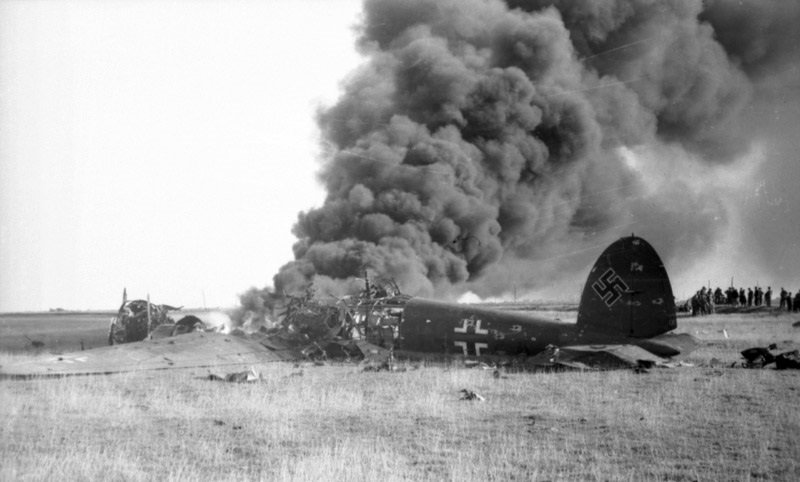When Londoners fought off the German invasion
On September 15, 1940 at the heart of the Second World War, there was a major attack by German planes on South London, writes Claudia Lee.
On this day, two massive waves of German attacks were fought off, while 60 German and 26 RAF planes were shot down.
The first attack came in the morning at 11am, when a team of about 100 German aircraft were spotted flying over the Kent coast – heading towards London.
A second wave of about 150 planes followed close behind.
Spitfire and Hurricane squadrons were sent to meet them, and a number of German planes turned back.

But two heavy bombs fell during this initial raid, and hit Buckingham Palace.
One landed on the palace buildings and the other on the lawns. It was the third time that week the palace was targeted, but neither of the bombs exploded.
Soon after, at around 2pm, another fleet of about 150 German planes crossed the coast near Dover.
This group was also followed by a second wave of 100 aircraft. They were heading for targets in South London and railways in London and Kent.
Fighter patrols were again ready to meet them, and only about 70 enemy planes reached their destination.
Bombs were dropped across London, specifically the South, and there were a series of dog fights across the sky.
As darkness fell, the raids continued, inflicting major damage on targets in Battersea, Clapham, Croydon and Elephant and Castle.
Railway bridges were hit between Victoria and Clapham Junction.
The railway was also hit at East Croydon, gas and water mains disrupted and St Thomas’, Guy’s and Lambeth hospitals were all hit, although there were no casualties.
The attacks by the Germans on this day was part of the Battle of Britain.
While September 15 is commemorated as Battle of Britain Day, it actually took place between July 10 and October 31, 1940.
Earlier in June, following the Nazis’ successful occupation of France, Winston Churchill had declared: “The Battle of France is over. The Battle of Britain is about to begin.”

Hitler had expected the British to seek a peace settlement after Germany’s defeat of France, but Britain was determined to fight on.
The German leader ordered his armed forces to prepare for an invasion of Britain – codenamed Operation Sealion.
But for the invasion to work the Germans needed to secure control of the skies over southern England, and remove the threat of the Royal Air Force (RAF).
The raids had devastating effects on London’s residents, but the RAF’s ability to repel the massive Luftwaffe assault on September 15 inflicted a severe loss for the Germans.
Fighting would continue for several more weeks, but The Battle of Britain is largely seen as the moment that the Luftwaffe failed to secure air superiority over British skies, with Hitler indefinitely postponing Operation Sealion.
Picture: A German plane crashed during the Battle of Britain; Pictures: Royal Air Force Museum
Everyone at the South London Press thanks you for your continued support.
Former Housing Secretary Robert Jenrick has encouraged everyone in the country who can afford to do so to buy a newspaper, and told the Downing Street press briefing:
“A FREE COUNTRY NEEDS A FREE PRESS, AND THE NEWSPAPERS OF OUR COUNTRY ARE UNDER SIGNIFICANT FINANCIAL PRESSURE”
If you can afford to do so, we would be so grateful if you can make a donation which will allow us to continue to bring stories to you, both in print and online. Or please make cheques payable to “MSI Media Limited” and send by post to South London Press, Unit 112, 160 Bromley Road, Catford, London SE6 2NZ






